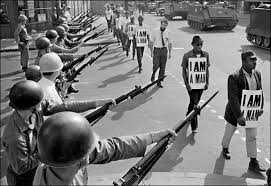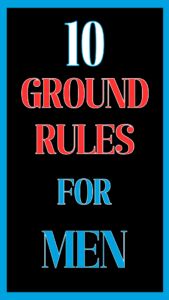The N-Word
The lost history of the N-Word has caused confusion in our subculture of Black people. The N-Word has always been a word of subjugation and segregation. Somehow, we have unknowingly and collectively chosen to keep the word that so many fought to relinquish. Let us set the record straight.
What does the N-Word mean?
Once upon a time it meant a Black slave. A human property. Three-fifths of a White man. Today, being a “real” N-word is someone that has respect in the street, displays defiance of authority, is aggressive or tough, values materialism, and has an attitude of hyper-masculinity. Don’t believe me? Ask ChatGPT what a “real” N-Word is. Remember that ChatGPT cannot be prejudiced however it can search the history of the N-Word throughout movies and music. Therefore, it won’t say a Black person. For some reason we have decided to define ourselves like this.
It kills me to see all the Black men and women using the N-Word as though it is something to aspire to be. I believe if Black people understood the history the N-Word we would toss it out of our vocabulary with haste. However, the history of the N-Word is lost. A new narrative going around is that the N-word I am referring to stands for Negus, a title for a king in Ethiopia. This is unlikely being that Ethiopia was on the east side of the continent of Africa. The likely origin is that Niger and Nigeria are close to Ghana which was the largest slave trading port on the west coast of the continent. The N-word probably was mispronounced by foreigners and used as a general term for African slaves coming from the region.
Read: Check On The Men Too
The "A" or Hard "E-R"
Many separate the N-word between those using the hard “E-R” and those using the “A” on the end. I make no such distinction as the difference was likely caused by distance and dialect. In “Uncle Tom’s Cabin” by Harriet Beecher Stowe, the N-word is used by various characters, reflecting the attitudes and language of the time. The novel, published in 1852, was intended to expose the brutal realities of slavery, and Stowe used the language and dialects of her characters to illustrate the harshness and dehumanization faced by enslaved Black people.
The use of the N-word by different characters in the book often varied in pronunciation, reflecting regional accents and social status. For instance, Southern characters might use a more drawn-out pronunciation, while others might use a clipped version, but the underlying intent was generally derogatory.
Today, even though the N-word is a racial slur it is expressed by artists in movies, music, and entertainment. Many Black celebrities have come out to speak as if to represent the entire subculture of Black people. They say that we have “reclaimed” the word as if it has somehow lost its visceral brutality and the deep, damaging wounds it has inflicted over generations. If White people do not say it in any context, there seems to be no problem. However, there is an agreement that White people should not say the N-word with the hard “E-R”. Meanwhile, Black people can call themselves and others the N-Word with the “A” as “a term of endearment”.
The History and the Generational Plan to Keep Us N-Words
Our acceptance of the N-Word has a problematic cultural impact that has spanned generations. What if I told you there has been a systemic plan since slavery to keep us N-Words? Let’s walk through it. From the abolition of slavery to the present day, the history of Black people in America has been marred by a continuous and systemic effort to subjugate and segregate our communities. Despite the progress we’ve made as a country, our own government has repeatedly played a complicit role in breaking down the social, economic, and cultural fabric of Black America. The confusion surrounding the N-word is a stark example of how we’ve been manipulated into perpetuating our own oppression, hanging ourselves with the proverbial noose that was set for us.
After the abolition of slavery in 1865, the promise of freedom quickly soured as Black people were thrust into a society that had no intention of granting them true equality. The Reconstruction era, meant to rebuild the South and integrate freed slaves into American life, was undermined by the re-election of Confederate officials and the enactment of Black Codes. These laws restricted the rights of Black people and laid the groundwork for Jim Crow, a system designed to keep Black Americans in a state of perpetual subordination. The denial of 40 acres and a mule to freed slaves further entrenched economic disparities, ensuring that Black people remained at the bottom of the social hierarchy.
As Jim Crow laws took hold, Black men were disproportionately imprisoned and forced into chain gangs—a new form of slavery under the guise of criminal justice. This was not just a social consequence but a deliberate strategy to exploit Black labor while keeping the community oppressed and divided. Fast forward to the mid-20th century, and we see the introduction of heroin and cocaine into Black neighborhoods, coinciding with the rise of Blaxploitation films. These movies glamorized criminal lifestyles, further embedding the idea that being a “Real N-word” meant embracing a life of crime, violence, and moral decay.
By the 1980s, the systemic effort to destroy Black communities reached a new level with the government’s involvement in the crack epidemic. It is well-documented that crack cocaine was funneled into Black neighborhoods, devastating families and leading to an unprecedented rise in incarceration rates. The War on Drugs, far from being a war on substances, was a war on Black people—a calculated move to criminalize and marginalize an entire generation.
The rise of Hip Hop in the late 20th century, while a powerful voice for the struggles of Black America, was also co-opted by the same forces that sought to destroy us. The glorification of the “Real N-word” persona in music and media perpetuated the cycle of criminalization. Young Black men, already targeted by the system, were now embracing an identity that almost guaranteed their downfall. By 2000, the prison population had swelled from 200,000 in the 1970s to nearly 2 million, with Black men making up a disproportionate share of that number.

Despite the strides we’ve made in civil rights, the systemic efforts to subjugate Black people have left deep scars on our community. The confusion around the N-word is not just a linguistic issue but a reflection of the internalized oppression that has been imposed on us. It’s a reminder that while we may have reclaimed some aspects of our culture, we must remain vigilant against the ways in which we are still being manipulated and divided. The N-word, and the history it carries, is a symbol of both our struggle and our resilience—a word that has been used to degrade us but also one that we must be cautious in wielding, lest we continue to perpetuate the very chains we’ve fought so hard to break.
If you enjoyed this post, buy me a Kofi🍵!
Thank you for Reading!
Be sure to check out the YouTube Channel Talk With BJH!






Pingback: What Legacy Will You Leave? - Talk With BJH